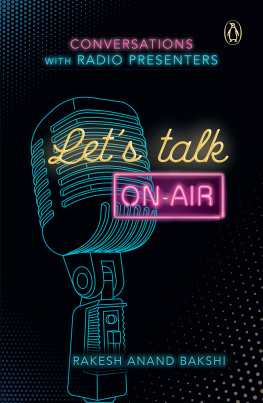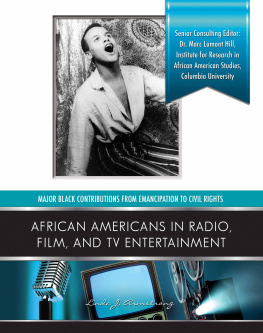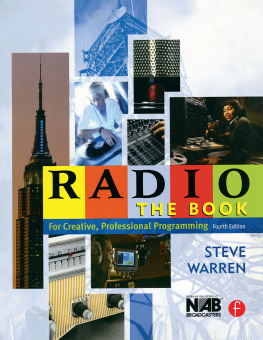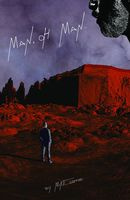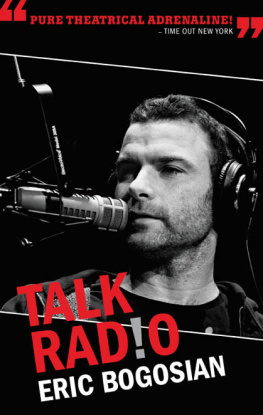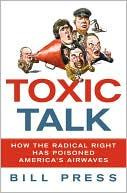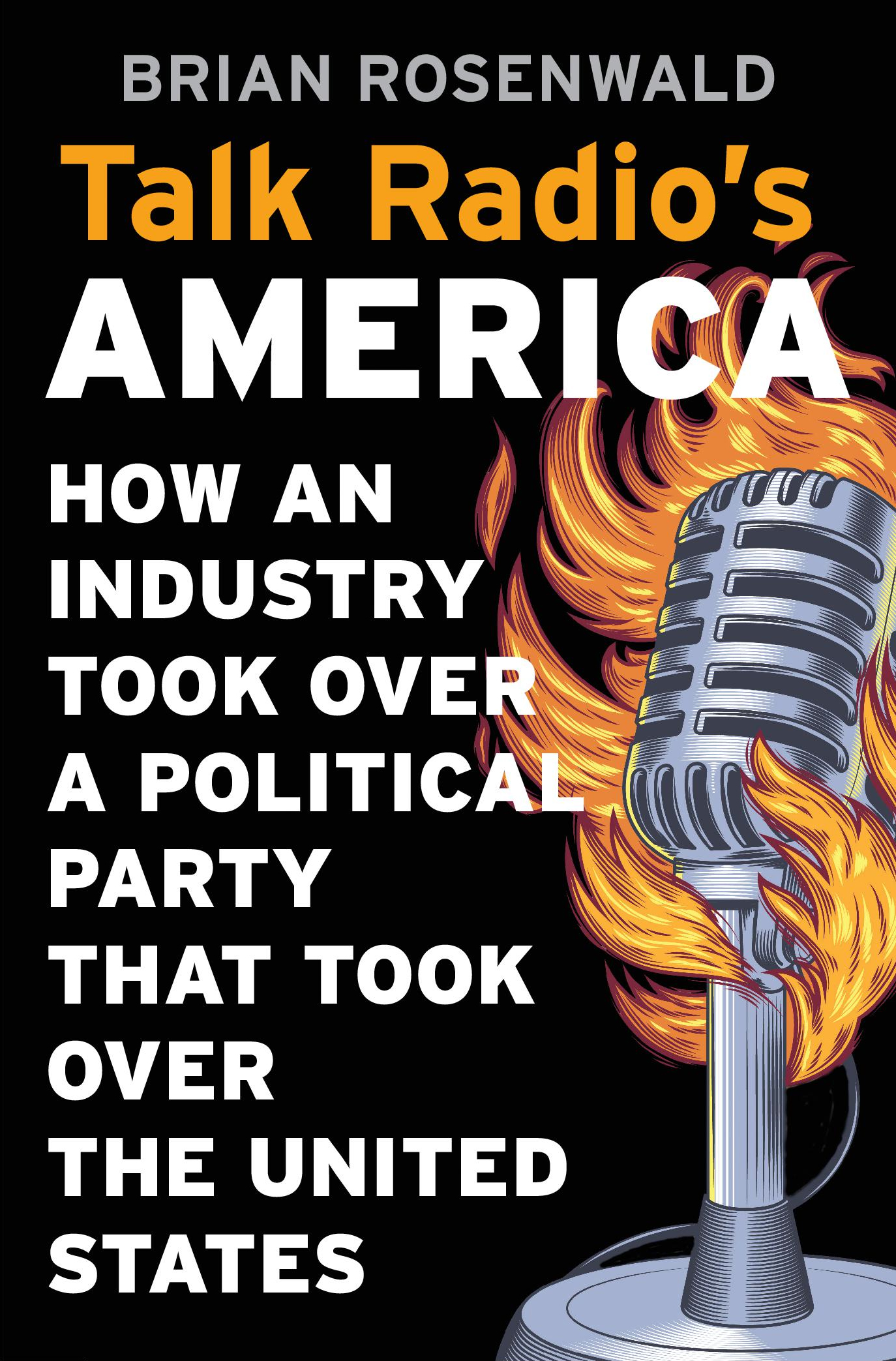Contents
Guide
Pagebreaks of the print version
Talk Radios
AMERICA
How an Industry Took Over a Political Party That
Took Over the United States
Brian Rosenwald


Cambridge, Massachusetts
London, England
2019
Copyright 2019 by the President and Fellows of Harvard College
ALL RIGHTS RESERVED
Cover design: Jill Breitbarth
Cover art: VectorPocket/iStock/Getty Images Plus
978-0-67418-501-2 (alk. paper)
978-0-674-24323-1 (EPUB)
978-0-674-24324-8 (MOBI)
978-0-674-24322-4 (PDF)
The Library of Congress has cataloged the printed edition as follows:
Names: Rosenwald, Brian, author.
Title: Talk radios America : how an industry took over a political party that took over the United States / Brian Rosenwald.
Description: Cambridge, Massachusetts : Harvard University Press, 2019. | Includes bibliographical references and index.
Identifiers: LCCN 2019014146
Subjects: LCSH: Radio talk showsPolitical aspectsUnited States. | Radio talk show hostsUnited States. | Radio in politicsUnited States. | ConservatismUnited States. | Right-wing extremistsUnited States. | Political partiesUnited States. | United StatesPolitics and government1989 | Republican Party (U.S. : 1854)
Classification: LCC PN1991.8.T35 R67 2019 | DDC 384.54/430973dc23 LC record available at https://lccn.loc.gov/2019014146
To my parents, without whose love, support,
and sacrifices this book wouldnt be possible.
Contents
UGUST 1, 1988, marked the beginning of the long road to President Donald Trump. But even political junkies took little notice of the fateful event that unfolded on that day, as a failed disc jockey and former Kansas City Royals executive named Rush Hudson Limbaugh III made his national radio debut. Only a small audience tuned in. So poorly commemorated was the moment that we dont even know how many stations broadcast day one of Limbaughs syndicated program. Limbaugh claims the show began on fifty-six affiliates, while other counts range between fifty-seven and eighty-seven.
From the beginning the show was brash, entertaining, controversial, and boundary-pushing. Before Limbaugh this sort of programming did not exist outside major cities. In 1983 there were just fifty-nine talk radio stations nationwide, and the programming on many of those stations consisted of advice shows, staid interviews, and caller-driven discussions of everything from neighborhood schools to abominable snowmen. Most talk radio programming focused on local concerns, and most of the industrys stars, such as Larry King and Sally Jessy Raphael, had left-of-center views but rarely shared them.
At the time of Limbaughs national debut, talk radio had negligible political impact. In talk radio hotbeds such as Boston, hosts might influence local and statewide policy debates, especially on visceral issues such as seat belt laws. But talk radio was not a partisan force, and it had no role in national politics. In fact the wall-to-wall conservative political talk stations that dominate the AM airwaves today were impossible until 1987, thanks to a regulation called the fairness doctrine. That year, however, the Federal Communications Commission (FCC) eliminated the policy, which required broadcasters of opinionated programming on controversial issues to offer an array of viewpoints.
In this more permissive environment, Limbaugh would go on to revolutionize the radio business. In doing so he helped unintentionally to spawn a major new political player. Within a decade the broadcast format he inaugurated aired on more than a thousand stations and kept millions company as they commuted, worked, and shouted back at their radios. It took just a few years before conservative talk radio began to influence national politics and public policy. That influence only grew throughout the decade as the business changed. Over the course of the 1990s and early 2000s, the number of nationally syndicated talk shows rose dramatically, and the content of talk radio programs became increasingly political and conservative.
Liberal pundits and some scholars agree on the broad outlines of the story: conservative station executives, conspiring with their Republican allies, built a format modeled on Limbaughs program, and thousands of Limbaugh-wannabes cropped up all over the country. Executives, hosts, and politicians turned talk radio into an appendage of the Republican Party, using the platform to get Republicans elected and advance the partys agenda. The success of talk radio led to the development of partisan and ideological cable news networks, and some hosts complemented their radio shows with primetime cable programs. Eventually this content found a home in the new digital sphere, with equally strident cheerleaders proliferating on blogs and other online publications.
This narrative makes sense, especially to liberals. After all, many conservative-media executivesand their corporate political action committeesdonate to Republican candidates, and most hosts champion conservative candidates and causes. But this narrative is wrong. In reality the story of talk radios emergence as a popular conservative format, and the impact it had on American politics, weaves together two distinct, complex tales. Neither has anything to do with a conspiracy to create a media servant of the Republican Party.
The first describes how talk radio spread across America, in the process saving AM radio from financial ruin. Limbaugh had no intention of affecting elections or legislation, and no inkling that he could. Nor did any of his early successors. The executives who gave these hosts a chance also had no interest in political outcomes. Hosts and their bosses were in business. They wanted to captivate listeners and make money, and they discovered, essentially by accident, that conservative political talkin the mouth of an entertaining personalityachieved this. Conservative hosts had strong opinions, but their primary goal was, and still is, financial gain. And it is because they realized financial gain that more and more stations invested in their style and content, while divesting from competing formats.
The second story concerns talk radios transformation, after 1995, into an almost entirely conservative and doctrinaire medium that eventually spawned successors in other media, took over the Republican Party, and reshaped it in hosts and listeners image. Limbaugh was a great innovator, but he didnt change American media and politics all at once or on his own. In conservative talk radios early days, hosts shared stations with liberal talkers and apolitical programs. There was not an immediate sense that conservative radio was the future, either. But gradually its success snowballed thanks to trial and error in the radio business, regulatory changes, political events, happenstance, and most importantly, listener behavior.
Hosts also got a boost from marginalized conservative Republican politicians, who realized that talk radio would enable them to circumnavigate the mainstream media and deliver their message directly to voters. Before talk radio came along, these politicians had trouble attracting media attention. So they invested their own credibility in the burgeoning medium, and they got lucky. It turned out that talk radio hit a nerve with a segment of the public that was disgusted by what they perceived as the mainstream medias liberal bias. In partnership with talk radio, Republicans secured an extraordinary victory in the 1994 midterm elections, capturing the House of Representatives for the first time in forty years. This unlikely outcome cemented the bond between Republicans and talk radio.


